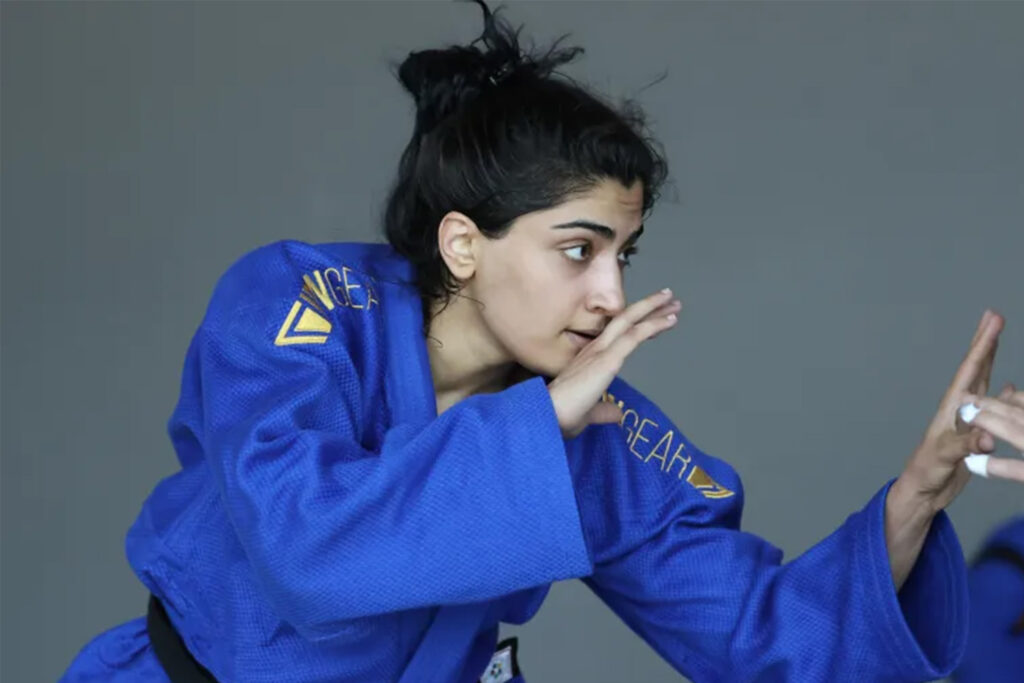Nigara Shaheen’s journey from refugee camps to earning her place on the Olympic Refugee Team as a Judo champion is a testament to the triumph of the human spirit over adversity. Born in Afghanistan, Shaheen was only an infant when her parents were forced to flee their home and find refuge in Peshawar, Pakistan. At the age of 11, Shaheen was introduced to judo and quickly embraced the sport, honouring a martial arts tradition passed down through generations of her family.
Committed to both education and sport, Shaheen earned a master’s degree in international trade from the Ural Federal University in Ekaterinburg, Russia. She went on to represent the International Judo Federation Refugee Team at competitions like the Düsseldorf and Kazan Grand Slams, where she showcased her skill on a global stage. In 2020, Shaheen proudly represented the Olympic Refugee Team at the 2020 Tokyo Games, competing in both individual and mixed-team Judo events.
Become an S Insider
The latest in fashion, beauty, design, and arts & culture.

Since settling in Canada in September 2022, Shaheen has continued to excel in her craft, training to once again compete on the Olympic Refugee Team at the 2024 Paris Olympics.
Shaheen’s story resonates far beyond the realm of sports, symbolizing the strength and resilience of those who dare to dream amidst the most daunting challenges.
Ahead we sat down with Shaheen to discuss her impact on displaced athletes worldwide, her ongoing advocacy for women’s rights, and the importance of mental health in sports.
S: Since martial arts runs in your family, how has this family tradition influenced your love for the sport?
NS: “As a kid, I always knew that I had to be physically active whether pursuing it as a career or just for my health. So, I was introduced to the world of sports in my childhood and when I got the opportunity to pursue it as a career, I already knew my love for sports, I just needed to find the right field for me.”
How does it feel to represent the Refugee Team for the second time at the Olympics?
“I feel representing the refugee team in the current situation [around the world] is crucial for me since the number of refugees worldwide has increased immensely in the past few years. These refugees must start everything from scratch, sometimes they are welcomed and sometimes they are not, so sharing stories of refugees around the world can help change the mindset of host countries and be more welcoming. Thanks to the platform I am getting, I want to share through my story that if refugees are given a chance, they can make a huge impact.”

What did you learn from your first experience competing at the Olympics?
“I have learned to enjoy the journey. At my last Olympics, I must confess that I was stressed and did not enjoy the journey of being an Olympian, this time I want to enjoy being part of the Olympics.”
What does an average day of training look like for you?
“Waking up at 5:30 am heading to the Dojo at 6:00 am, heading back home around 9:00 am, taking a shower, teaching my students online, and getting ready for my evening training. I get home around 10:00 pm from training so I usually get enough food during lunchtime so that I can eat the leftovers for dinner. After dinner, I usually fall asleep on the couch because I get so tired.”
“On the weekends I make sure to go out with my friends or visit my uncle to relax a bit and get ready for the new week of adventures.”

Being an advocate for women’s rights, what do you think is the importance of gender parity in sports?
“The presence of women and girls in sports can be important in showing the world that sports can also be a career option or even just an option at all for women and girls. Women and girls in sports are not celebrated in most countries, as it is not normalized. As female athletes, our existence can be crucial in normalizing women in sports and also being a role model to other young girls and women who want to pursue sports.”
You also advocate for mental health for athletes, what are some things that you do in your life to improve your mental health throughout training?
“I believe mental health is as important as physical health. Listen to your mental health just as you listen to your body. Take a break if you need to, relax, and go back to your training stronger. When I get exhausted or don’t feel myself, I usually read biographies of people who survived hardships and did not give up. They motivate me to keep going. I must mention that I believe there are so many unheard, inspiring stories that are not yet documented, and some of them can be encouraging, so every chance I get I try to read about other people and their journey. I find a lot of motivation in those stories.”

